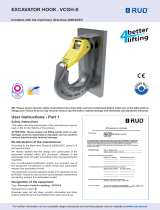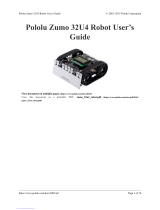
HR2826, HR2825
Juice extractor
500
450
400
350
300
250
200
150
50
100
A
C
D
F
I
H
E
G
B
1
2 3 4 5
6 7 8 9
10 11 12 13
14

ENGLISH
General description (fig. 1)
.
A Pusher
B Feeding tube
C Lid
D Sieve
E Pulp container
F Motor unit
G Lid latches
H On/off switch
I Juice jug (type HR2826 only)
Introduction
.
With this juice extractor you can make 100% pure fruit juice and vegetable
juice.
Important
.
◗ Read these instructions for use carefully before using the appliance and
save them for future reference.
◗ Check if the voltage indicated on the base of the appliance corresponds
to the local mains voltage before you connect the appliance.
◗ Do not use the appliance when the mains cord, the plug or other
components are damaged.
◗ If the mains cord is damaged, it must be replaced by Philips, a service
centre authorised by Philips or similarly qualified persons in order to
avoid a hazard.
◗ Keep the appliance out of the reach of children.
◗ Never use accessories and/or parts made by other manufacturers or
that have not been specifically recommended by Philips. Your
guarantee will become invalid if you use such parts or accessories.
◗ Never reach into the feeding tube with your fingers or an object while
the appliance is running.
◗ Only unlock the latches after you have switched off the appliance and
the sieve has stopped rotating.
Preparing for use
.
1 Place the pulp container into the motor unit (fig. 2).
2 Put the sieve into the motor unit (fig. 3).
3 Place the lid onto the appliance in such a way that it fits on all sides
(fig. 4).
4 Lock the lid with the latches ('click'). Check if the lid is positioned
correctly (fig. 5).
5 Place the juice jug or a glass under the spout (fig. 6).
6 Put the plug in the wall socket.
Ingredients and tips
.
- Use fresh fruit and vegetables; they contain more juice.
- Particularly suitable for processing in the juice extractor are pineapples,
beetroots, celery stalks, apples, cucumbers, carrots, spinach, melons,
tomatoes, oranges and grapes.
- You don't have to remove thin peels or skins. Only thick peels, e.g. those
of citrus fruits, pineapples and uncooked beetroots need to be removed.
Also remove the white pith of citrus fruits because it has a bitter taste.
- Fruits that contain starch, such as bananas, papayas, avocados, figs and
mangoes are not suitable for processing in the juice extractor. Use a food
processor, blender or bar blender to process these fruits.
- Leaves and leaf stalks of e.g. lettuce can also be processed in the juice
extractor.
- Apple juice turns brown very quickly. You can slow down this process by
adding a few drops of lemon juice.
- With tomato juice you can prepare a delicious Bloody Mary.
- You can use the pulp of e.g. carrots, beetroots, cabbage, spinach can be
used as a basis for soups, sauces, jams, ice-cream and deserts. Cook the
pulp and add spices and/or herbs to taste. Liquidise the cooked pulp with
a food processor, blender or bar blender. Use tomato pulp to make
tomato paste.
- Try these combinations of ingredients to prepare delicious juices: apple
and carrot, orange and grape, pinapple and grapefruit, beetroot and
carrot, carrot and melon, apple and orange.
Using the appliance
.
The appliance will only function if all parts have been properly placed into
and onto the appliance and the lid has been properly locked in place with
the latches.
1 Wash the fruit and/or vegetables (fig. 7).
2 Cut them into pieces that fit into the feeding tube (fig. 8).
3 Switch the appliance on by setting the on/off switch to I (fig. 9).
4 Put the pre-cut pieces of ingredients into the feeding tube and gently
press them towards the rotating sieve with the pusher (fig. 10).
Do not exert too much pressure on the pusher; this could affect the quality
of the end result and it could even cause the sieve to come to a halt.
Never insert your fingers or an object into the feeding tube.
5 After you have processed all ingredients and the flow of juice into the
juice jug or glass has stopped, switch the appliance off and wait until the
sieve has stopped rotating before removing the juice jug or glass (fig. 11).
◗ Preferably drink the juice immediately after it has been extracted. If it
is exposed to air for some time, the juice will lose its taste and
nutritional value. If you are not going to drink the juice right away,
store it in the refrigerator in a well-closed container for a maximum of
24 hours.
6 If the pulp container is full, switch the appliance off and wait for the
sieve to come to a complete standstill.
7 Release the two latches and remove the lid (fig. 12).
8 Remove the pulp container (fig. 13).
9 Empty the pulp container (fig. 14).
10 Reassemble the juice extractor and continue juicing.
Cleaning
.
1 Switch the appliance off, remove the plug from the wall socket and
wait until the sieve has stopped rotating.
2 Disassamble the appliance for washing-up.
Do not clean the appliance or any of its parts in the diswasher.
Do not use abrasive cleaning agents, scourers, acetone, alcohol etc. to
clean the appliance.
◗ Wipe the motor unit with a damp cloth, if necessary with some
washing-up liquid.
3 Clean the sieve, pulp container and juice jug in warm water with some
washing-up liquid immediately after use and rinse them with warm water.
Use a soft brush to clean the sieve.
Guarantee & service
.
If you need information or if you have a problem, please visit the Philips
website at www.philips.com or contact the Philips Customer Care Centre in
your country (you will find its phone number in the worldwide guarantee
leaflet). If there is no Customer Care Centre in your country, turn to your
local Philips dealer or contact the Service Department of Philips Domestic
Appliances and Personal Care BV.
4222 002 30264
2/7
Page is loading ...
Page is loading ...
Page is loading ...

1
2
3
4
5
◗
6
7
8
9
10
1
2
◗
3
2006/03/10
A
B
C
D
E
F
G
H
I
◗
◗
◗
◗
◗
◗
◗
◗
1
2
3
4
5
6
4222 002 30264
6/7
Page is loading ...
-
 1
1
-
 2
2
-
 3
3
-
 4
4
-
 5
5
-
 6
6
-
 7
7
Philips HR2825/07 User manual
- Category
- Juice makers
- Type
- User manual
Ask a question and I''ll find the answer in the document
Finding information in a document is now easier with AI
in other languages
- español: Philips HR2825/07 Manual de usuario
Related papers
Other documents
-
Tefal ZE550DMX User manual
-
Porter-Cable HP4648 User manual
-
Samsung DVD-P3434 Product Directory
-
Samsung DVD-P4444 Product Directory
-
 RUD VCGH-S Series User Instructions
RUD VCGH-S Series User Instructions
-
Black & Decker JBGM600-B5 User manual
-
Black & Decker PRJE1200 User manual
-
 Pololu Corporation Zumo 32U4 User manual
Pololu Corporation Zumo 32U4 User manual
-
Siemens KA90GAI20/04 User manual
-
Samsung PS-63P5H/HAC User manual








